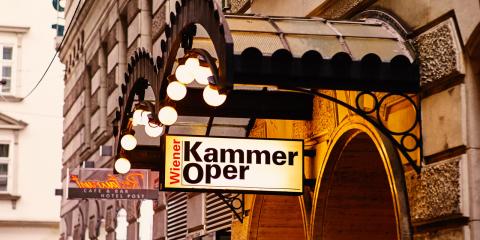-
 © Peter M. Mayr
© Peter M. MayrMedea
Opera by Georg Friedrich Händel, Marc-Antoine Charpentier u. a. Kammeroper - Wien
Fleischmarkt 241010 Wien
Medea Kammeroper - Wien Tue 17.Mar 2026 19:00 replace me !Medea Kammeroper - Wien Thu 19.Mar 2026 19:00 replace me !Medea Kammeroper - Wien Sat 21.Mar 2026 19:00 replace me !Medea Kammeroper - Wien Mon 23.Mar 2026 19:00 replace me !Medea Kammeroper - Wien Thu 26.Mar 2026 19:00 replace me !Medea Kammeroper - Wien Sat 28.Mar 2026 19:00 replace me !Medea Kammeroper - Wien Mon 30.Mar 2026 19:00 replace me !Medea Kammeroper - Wien Wed 01.Apr 2026 19:00 replace me !Musical theatre project with words by Euripides, Franz Grillparzer and others, and music by George Frideric Handel, Marc-Antoine Charpentier and others
Child murderess, avenger, thief – Medea is among those female characters in Greek mythology who have provoked the most repulsion and condemnation over the millennia. Yet the princess of Colchis sacrifices virtually everything for the love of the Greek Jason: she has to abandon not just her family, but her homeland too as she helps him steal the Golden Fleece. During their long flight through the lands of the Mediterranean, two children are born. In Corinth, where the family are granted asylum, Jason leaves Medea for the girl he loved as a youth. Devastated, Medea kills her own children. Baroque opera had generally portrayed Medea as a raging fury, but Franz Grillparzer, in around 1820, took her side in his trilogy Das goldene Vlies and, since the mid-20th century at least, cultural historians have ventured a reappraisal of the character that had been so vilified up to then: one criticism raised was that her story had always been told from a man’s viewpoint, from which a woman who undermines the masculine world cannot possibly be presented without prejudice. Together with conductor Benjamin Bayl, director Corinna von Rad explores the myth and asks how a story about Medea could be told in 2026. Taking the numerous – chiefly Baroque – settings and theatrical adaptations of the source as its starting point, an evening is created in which current social developments are also examined.
In Italian, French and German with German and English surtitles(Source: theater-wien.at)
Navigation:
- shopping-cart ({{mainCartInfo.itemCount}})
-
- venues
- Genres
- language:
